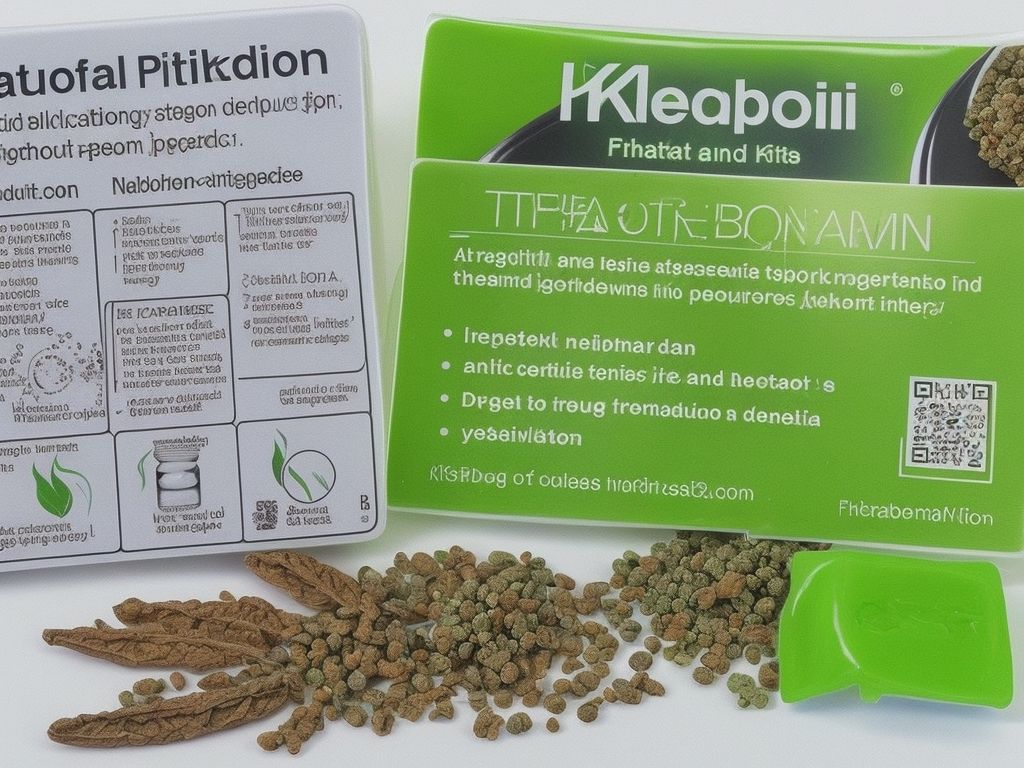Does Kratom Show Up in a Drug Test? Exploring Kratom’s Presence in Drug Screenings
Kratom’s popularity is rising, but many ask: will it show up on a drug test? Not all tests check for kratom. Standard ones screen for marijuana, cocaine, opioids, and amphetamines. But there are specific tests that detect its presence. It’s important to know the type of test being done.
Liquid chromatography-tandem mass spectrometry (LC-MS/MS) is one method to identify kratom use. This advanced technique targets mitragynine and 7-hydroxymitragynine, two active compounds found in kratom. It can detect recent kratom consumption.
Certain situations, like rehab centers or workplaces with strict substance policies, may require specialized testing that includes kratom. To stay safe, individuals should understand the drug testing protocols of their environment. Knowing which substances are included in the drug test helps protect their best interests.
What is Kratom?
Kratom is a tropical tree native to Southeast Asia, gaining fame for potential health benefits. This herb, Mitragyna speciosa, has been used for centuries in traditional medicine. Its leaves carry compounds interacting with the body’s receptors – producing stimulant and opioid-like effects. Kratom can be found in forms such as powder, capsules, and extracts.
Mitragynine and 7-hydroxymitragynine are its main active compounds. These bind to opioid receptors in the brain. This can lead to pain relief, improved mood, increased energy, and reduced anxiety or stress. However, the FDA has not approved kratom for any medical use due to limited research on safety and effectiveness.
One unique thing about kratom is its dosage-dependent effects. In lower doses (1-5 grams), it acts as a stimulant, boosting energy and focus. At higher doses (5-15 grams), it’s more sedative and may provide relaxation and pain relief. Effects usually start 10-15 minutes after consumption and can last for hours.
Kratom has gained loyalty among some individuals but must be approached with caution due to potential risks. It may have addictive properties like opioids and cause withdrawal symptoms if stopped abruptly. Additionally, there have been reports of liver damage related to certain kratom products.
Prioritize your safety by staying up to date with the latest research and findings about kratom. Knowledge is power when it comes to using natural remedies like kratom.
Understanding Drug Tests
To understand drug tests and whether kratom shows up in them, explore the section “Understanding Drug Tests.” Discover the various types of drug tests employed in different settings.
Different Types of Drug Tests
Drug tests are used to detect substances in the body. They are a key part of many industries, like healthcare and transportation. Here’s a table of different drug tests and their features:
| Drug Test Type | Description | Detection Window |
|---|---|---|
| Urine Test | Most common. | 1-3 days |
| Hair Test | Tracks drug use over a longer period. | Up to 90 days |
| Saliva Test | Quick results. | 1-4 days |
| Blood Test | Accurate detection. | A few hours |
Each type has pros and cons. For example, urine tests are cheaper, but hair tests offer a longer window.
A multinational firm recently did random drug tests on their employees. One failed the hair test due to substance abuse during their struggles. The company then stepped in to help the employee fight their addiction.
Does Kratom Show Up in Drug Tests?
To determine if kratom shows up in a drug test, understanding the factors that may influence its detection is crucial. These factors will be discussed in detail in the following sub-sections: [sub-sections].
Factors that May Influence Detection
Many things can affect whether kratom is detected in drug tests. The type of test, its sensitivity, and the amount ingested. Additionally, metabolism and excretion rates, frequency, and duration of use, all play a role.
To illustrate this, consider the table below:
| Factors | Description |
|---|---|
| Test Type | Different tests vary in their ability to detect kratom. |
| Sensitivity | A test’s sensitivity affects if it spots trace amounts. |
| Consumption Amount | More kratom increases the chance of detection. |
| Individual Differences | Metabolism and excretion rates differ. |
| Frequency and Duration | Regular and long-term use up detection chances. |
Apart from these, other factors like cross-reactivity with other substances, testing protocols, and adulteration should be kept in mind.
It is essential to be aware of these factors to avoid potential surprises. Understanding the influences on detection can help individuals prepare better.
Tips for Avoiding Detection
To avoid detection in drug tests, follow these tips for avoiding detection in kratom use. Abstaining from kratom use and flushing out the system are two effective solutions.
Abstaining from Kratom Use
It’s essential to understand the importance of avoiding kratom. This herbal supplement from Southeast Asia is becoming popular due to its supposed medicinal benefits, but the risks are too great.
Kratom withdrawal symptoms can be hard to deal with, such as anxiety, restlessness and insomnia. To stay away from it, get help from experts like counselors or therapists. Also, make sure you have a strong support network.
Pinpoint triggers that might lead to kratom use, and find healthier alternatives to cope with stress or pain. Exercise or take up hobbies to keep your mind occupied and express emotions in a better way.
Self-discipline is key to staying away from substances like kratom. Cultivate mindfulness and focus on personal growth – this will help you keep away from addiction.
Now is the time to prioritize your health and future. Don’t let fear stop you. Seek support, find alternative coping mechanisms and free yourself from the grip of addiction. You deserve a future full of vitality and genuine joy.
Flushing Out the System
Get rid of browsing history and cookies. This stops any evidence of sites visited or online activities being saved on the device.
Scrub cached data and temporary files. These files may show confidential info, so it’s best to delete them regularly.
Use a Virtual Private Network (VPN). This hides IP addresses and scrambles web traffic. It makes it hard for anyone to identify what you do online.
Remember to always keep security software up-to-date and enable auto-update for systems and apps. This stops potential security holes from being abused.
A hacker called “Ghost” was famous for using advanced erasing techniques to stay invisible. He managed to make sure no one could trace his online movements, which made him notorious in the cyber world.
By taking action to erase the system, you can secure your online privacy and shield yourself from prying eyes. Put these procedures in place as part of regular computer maintenance to remain safe and worry-free while surfing the web.
Conclusion
Kratom may or may not appear on a drug test. It all depends on the type of test and which substances are being tested for. Kratom is usually not part of a standard drug testing panel. So, if a person gets tested specifically for kratom, it is more likely to be detected.
However, there have been cases where people take kratom and still pass the drug test. This could be due to dosage and how recently the kratom was taken.
Let’s take John’s story as an example. He regularly consumed kratom but was worried about the results of his drug test. He went ahead with the test, and surprisingly passed! This shows that the outcome of these tests is unpredictable when it comes to kratom.
Frequently Asked Questions
FAQs about Kratom and Drug Tests:
Q1: Does kratom show up in a drug test?
A1: Typically, kratom does not show up on most standard drug tests as it is not one of the substances commonly screened for. However, specialized tests can detect its presence if specifically sought.
Q2: What kind of drug tests can detect kratom?
A2: Kratom can be detected through certain specialized tests such as urine tests or blood tests that specifically target the alkaloids present in kratom.
Q3: Are employers allowed to test for kratom?
A3: The legality of testing for kratom may vary depending on your location and the regulations in place. It is advisable to consult local laws or your employer’s policy regarding substance testing.
Q4: How long does kratom stay in the body?
A4: The duration kratom remains detectable in the body varies depending on factors such as dosage, frequency of use, metabolism, and the type of test being conducted. Generally, it can be detected for a few days up to a week.
Q5: Can kratom cause a false positive on a drug test?
A5: Kratom typically does not result in a false positive for substances commonly tested for like opioids, but it might trigger a confirmatory test if the initial test shows an unexpected result.
Q6: How can I make sure kratom does not show up on a drug test?
A6: If you are concerned about kratom showing up on a drug test, the best approach is to refrain from using it. Since the legality and testing practices might vary, it is advisable to consult local laws and regulations.




Leave a Reply
Want to join the discussion?Feel free to contribute!